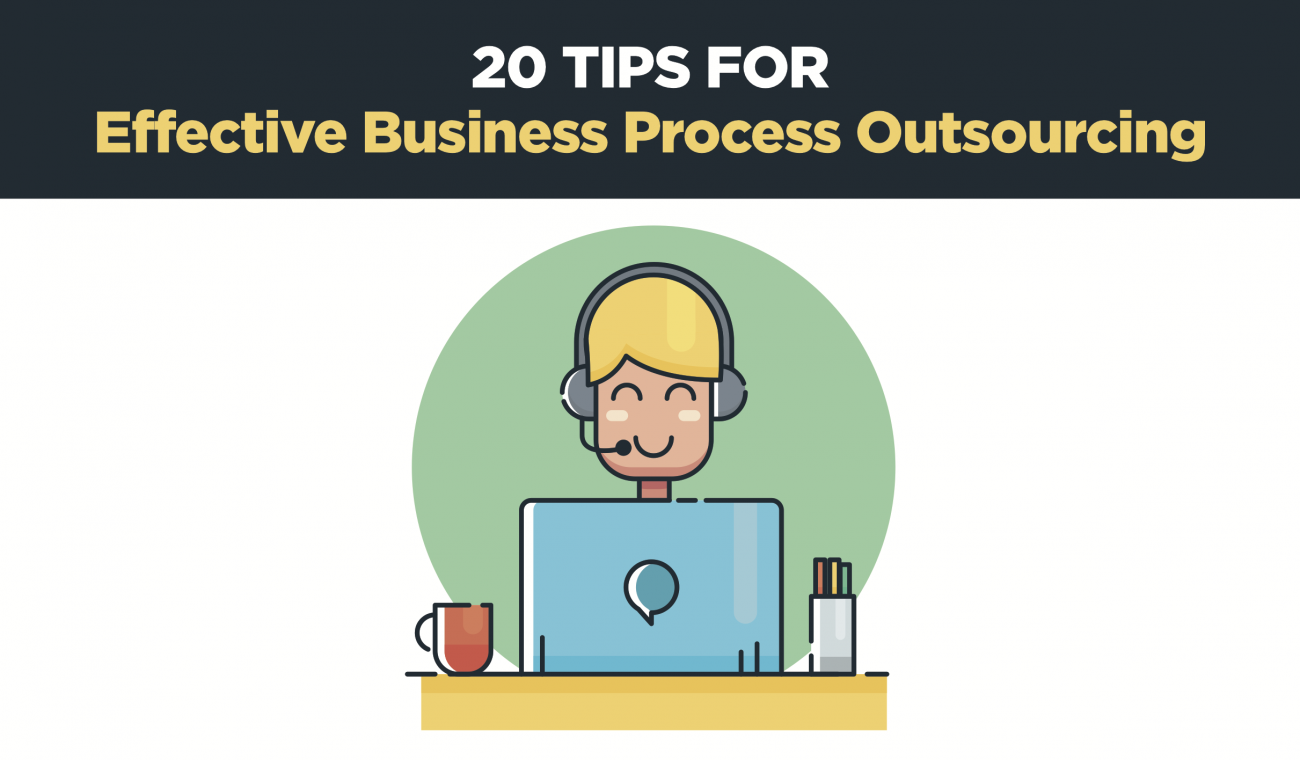It’s simple; running an effectual business means minimizing your costs and maximizing your output. While this mantra seems easy to follow, reality doesn’t always allow that.
Outsourcing is an effective way for businesses to achieve this mantra, and while a well-traveled road, it is often done so with inadequate knowledge that can sometimes lead to more stress than relief.
Here are 20 tips that can help you effectively manage your outsourcing arrangements and help you achieve your business goals.
1. List your priorities and requirements
Arguably the most crucial step in the journey of choosing an outsourcing partner, it is imperative to list out the company objectives and operations. The list aids in giving clarity to help decide with operations and processes can and more importantly, should be outsourced. Another advantage of doing this is an effective relocation of talent and resource.
2. Partner research
It is important to know your partner. Once you have your goals and objectives chalked out, make a list of the service providers present in the market for your desired field. Check their track records, list of clients they have handled, successful projects they have executed and their delivery times.
3. Don’t focus only on cost
Compromising on quality to be under budget is a mistake that can prove even more expensive than you realize. While being cost-effective is an essential factor, finding the right partner that helps you optimize your goals providing quality results can, in fact, be more cost-effective in the long run.
4. Weigh the pros and cons
Once you’ve done your research and understood the costs involved, it’s always advisable to compare providers and list out their pros and cons. This provides a clear vision of who the best partner will be for your business.
5. Focus on growth
Outsourcing means growth and not downsizing. By outsourcing routine tasks, your business can become more cost-effective, allowing resources to focus on growth.
6. Ask for a hands-on demonstration
An effective way to analyze the capabilities of your outsourcing partner is a hands-on demonstration that ensures both partners have a clear understanding of the task at hand. This would also effectively showcase the potential problems allowing you to evaluate the solutions provided and room for improvement.
7. Understand legal requirements
Finding an outsourcing partner comes with legal responsibilities. The Service Level Agreement is a crucial document. The document should ensure that all details and responsibilities for each party are clearly defined.
8. Define a clear scope of work
Along with defining your priorities, it is imperative that a scope of work is drawn up. A scope of work demarcates the division of work to be performed under a contract or subcontract in the completion of a project, typically broken out into specific tasks with deadlines.
9. Set realistic deadlines for tasks
Remember that outsourcing firms are not magicians. While outsourcing enhances businesses, realistic timelines are a must for productivity.
10. Review portfolios and samples
Remember, you know your priorities and projects the best. Reviewing work from potential outsourcing partners that resonate with your project and project goals is essential.
11. Start small
A way to ensure that you find your perfect fit is to start small. Start with smaller projects and then expand the mandate at a rate which you and your partner are comfortable.
12. Negotiate ownership of tasks upfront
To avoid confusion between all parties, it is always a good idea to demarcate work and ownership of the tasks at hand.
13. Tie payments to defined project milestones
Depending on the agreement that you arrive at with your partner making payments based on project milestones is a way to ensure timely delivery and steady growth
14. Communication
A lack of proper communication can severely jeopardize your outsourcing partnership. Lack of communication between partners can often mean a disconnect with your consumers.
15. Choose a Company over a Freelancer
Freelancers can be great in some circumstances, but when it comes to an outsourcing partnership, finding a motivated, long-term partner is vital.
16. Find an end-to-end solutions provider
Ensure that your partner can provide end-to-end solutions and has a comprehensive process when it comes to completing tasks. This can significantly impact the health and development of your business.
17. Transfer accountability
The idea of outsourcing is to help relieve your staff to monitor repetitive duties continually. Make sure that the outsourcing service provider takes complete responsibility and accountability for the project after a certain period to eliminate overlap of work.
18. Performance reviews
Periodic reviews of the service provider are crucial to ensure quick resolution in case of any complications with the project.
19.Technology and ease of implementation
Finding an outsourcing partner that is technologically advanced and uses software that is easy to implement and use helps your employees and teams transition.
20. Post project support
Ensuring that your partner supports you after the completion of particular tasks helps to iron out any last min glitches that may arise.
By investing in business process outsourcing, you can get back to your core functions and focus on growth, development, and other areas of potential.

